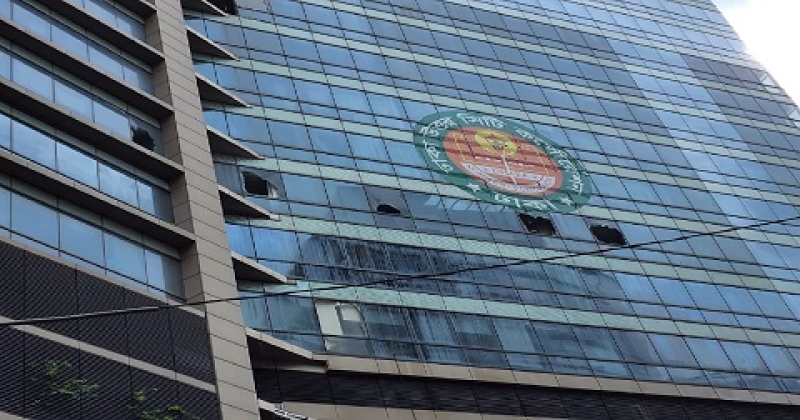- India Sees 9% Drop in Foreign Tourists as Bangladesh Visits Plunge |
- Dhaka Urges Restraint in Pakistan-Afghan War |
- Guterres Urges Action on Safe Migration Pact |
- OpenAI Raises $110B in Amazon-Led Funding |
- Puppet show enchants Children as Boi Mela comes alive on day 2 |
Don't ride easybike nor buy things from wayside hawkers: DNCC

Dhaka North City Corpn building
Dhaka, Apr 24 - Dhaka North City Corporation (DNCC) Administrator Mohammad Ejaz has urged city commuters to shun battery-powered auto-rickshaws and to refrain from purchasing goods from illegal vendors occupying the city's footpaths.
DNCC administrator said this while speaking at a public hearing with residents of all wards under DNCC Zone-7, held in the capital.
Mentioning that battery-powered auto-rickshaws are illegal all over Bangladesh, Ejaz said people demanded to impose a ban on the vehicles and hawkers on footpaths .
“I urge everyone not to ride in these battery-powered rickshaws. If you stop using them, the operators will be discouraged,” he said.
“We have clearly decided that auto-rickshaws and rickshaws cannot operate on main roads. Through a high-level committee at DNCC, we’ve taken on a project where BUET (Bangladesh University of Engineering and Technology) is designing a new model of auto-rickshaw. Once that design is finalised, we will issue licenses accordingly. Only licensed vehicles will be allowed on certain roads in Dhaka. Auto-rickshaws will not be allowed on main roads under any circumstances. The traffic department has already started installing road traps,” he said.
Urging people not to buy from illegal vendors on the footpaths, the DNCC administrator said, “Every area in Dhaka has markets and shopping centers. We are conducting regular drives against them. With public cooperation, this problem can be solved more easily.”
So far, hearings have taken place in seven zones of the city. People take part in these hearings to directly present their complaints, suggestions and service-related issues to the administrator, who listens and responds to each question. - UNB

